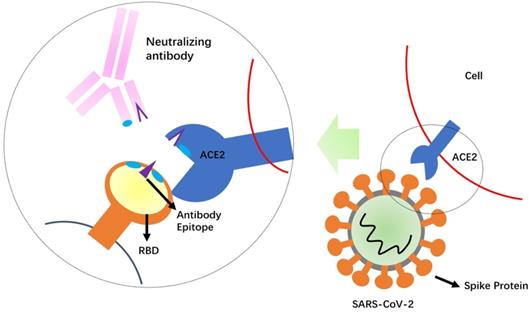Now that SARS-CoV-2, the virus that causes COVID-19, has been around for a while, we are all bound to know one person or another that has been affected by this virus. Perhaps you were infected, or had a loved one or friend that was infected, and tested positive. Or maybe you had symptoms that could have been due to COVID but were never tested to confirm infection. There are still many things that we are learning about the virus-like possible treatment options, the development of immunity, and what life will look like in the future with this virus.
Here are some things that we know:
- We can continue in minimizing the spread of the virus by practicing social distancing.
- Washing your hands for at least 20 seconds can minimize the spread of germs and help prevent infection.
- Wearing a cloth mask in public can protect your surrounding community in case you happen to be an asymptomatic carrier.
- Frequently cleaning high touch surfaces at home can also minimize the spread of infection.
Here are some areas that we need more information before we can make general recommendations:
We do not have a specific medication or treatment for this infection:
-
- However, many clinical trials are taking place to see if some medications are effective.
- Clinical trials are how we determine whether a treatment is safe and effective in medicine, and this information takes time to collect and interpret.
Development of antibodies and immunity:
-
- When you are exposed to an infection, your body’s immune system is stimulated and responds to the infection by making antibodies against it. There are different types of antibodies and they act differently in helping your immune system respond to different types of infections.
- This is what happens when you receive a vaccination—your body is being given a safe way to make antibodies against a particular infection.
- Patients that have had an infection with SARS-CoV-2 have developed antibodies against the virus. What we don’t know is whether the antibodies that have developed will protect against future infection with COVID-19. In other words, whether you have developed immunity against the virus.
- Antibodies are found in your plasma or the part of your blood that has no cells.
- There are currently clinical trials taking place that are looking to see if giving the convalescent plasma of someone that has recovered from COVID-19 to a patient currently infected with SARS-CoV-2 will help the patient recover faster.
What can you do to help?
If you have tested positive for COVID-19…
-
- If you have recovered, with complete resolution of your symptoms for at least 28 days, you may qualify to donate plasma.
- The Baton Rouge Clinic is participating in the Convalescent Plasma Expanded Access Program with the Mayo Clinic and LifeShare Blood Center.
- Contact your Primary Care Physician and ask if you are a candidate, or to learn more.
If you did not receive testing for COVID-19…
-
- But you had symptoms of the infection, you may qualify to have a blood test to check for the presence of antibodies against SARS-CoV-2.
- If your antibody test results positive, you may qualify for participation in the Convalescent Plasma Expanded Access Program.
- Contact your Primary Care Physician and ask if you are a candidate for antibody testing, or to learn more.
If you have not had symptoms of COVID-19…
-
- Continue to practice social distancing
- Continue wearing a cloth mask in public
- Continue washing your hands regularly
- Stay safe and healthy, we are all in this together!
